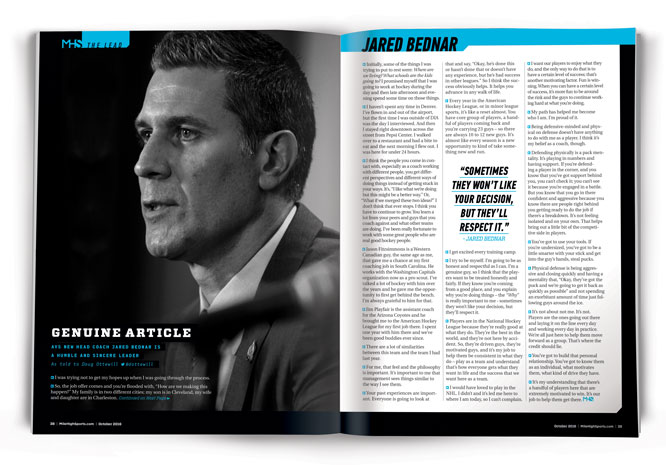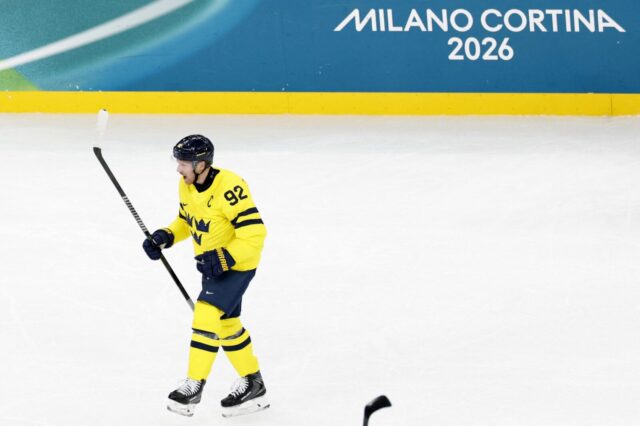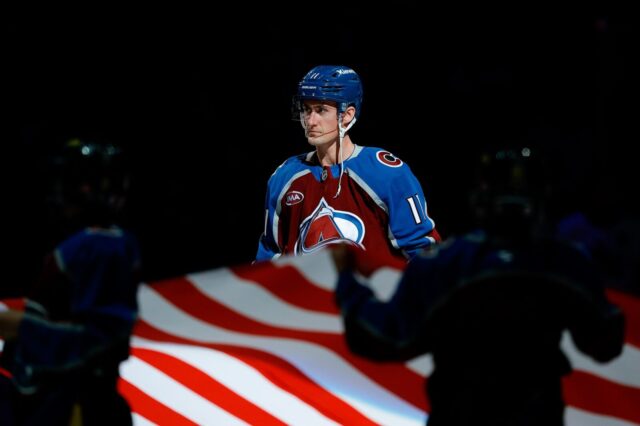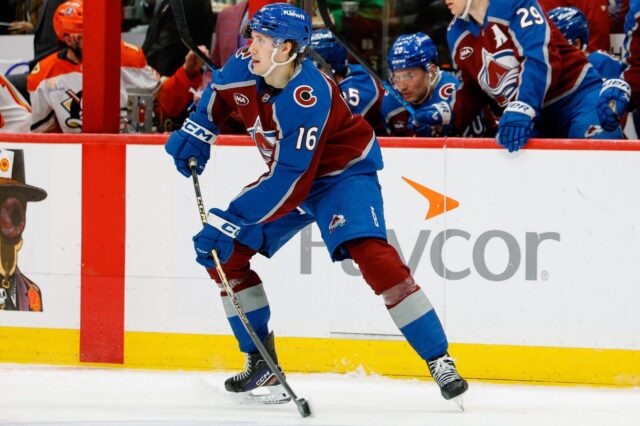This story originally appeared in Mile High Sports Magazine. Read the full digital edition.
Each month Mile High Sports Magazine sits down with an important figure in Colorado sports. This month Doug Ottewill spoke with new Avalanche head coach Jared Bednar one-on-one the day Bednar was introduced in Denver. Here’s what Bednar had to say…
I was trying not to get my hopes up when I was going through the process.
So, the job offer comes and you’re flooded with, “How are we making this happen?” My family is in two different cities; my son is in Cleveland, my wife and daughter are in Charleston.
Initially, some of the things I was trying to put to rest were: Where are we living? What schools are the kids going to? I promised myself that I was going to work at hockey during the day, and then late afternoon and evening spend some time on those things.
I haven’t spent any time in Denver. I’ve flown in and out of the airport, but the first time I was outside of DIA was the day I interviewed. And then I stayed right downtown across the street from Pepsi Center. I walked over to a restaurant and had a bite to eat and the next morning I flew out. I was here for under 24 hours. So I haven’t had any chance to enjoy the city. From what I understand, it’s a beautiful city. Everything I’ve seen is great and the people are great. I like to be outdoors, so I think this is a really nice spot for me and my family to come and enjoy.
I think the people you come in contact with, especially as a coach working with different people, you get different perspectives and different ways of doing things instead of getting stuck in your ways. It’s, “I like what we’re doing but this might be a better way.” Or, “What if we merged these two ideas?” I don’t think that ever stops. I think you have to continue to grow. You learn a lot from your peers and guys that you coach against and what other teams are doing. There’s always that give and take where you can learn those things. The differences, different experiences, I think that helps mold you and shape how you are. I’ve been really fortunate to work with some great people who are real good hockey people.
Jason Fitzsimmons is a Western Canadian guy, the same age as me, that gave me a chance at my first coaching job in South Carolina. He works with the Washington Capitals organization now as a pro scout. I’ve talked a lot of hockey with him over the years and he gave me the opportunity to first get behind the bench. I’m always grateful to him for that.
Jim Playfair is the assistant coach for the Arizona Coyotes and he brought me to the American Hockey League for my first job there. I spent one year with him there and we’ve been good buddies and talk a lot hockey ever since.
I feel there are a lot of similarities between this team and the team I had last year.
For me, that feel and the philosophy is important. It’s important to me that management sees things similar to the way I see them.
Your past experiences are important. Everyone is going to look at that and say, “Okay, he’s done this or hasn’t done that or doesn’t have any experience, but he’s had success in other leagues.” So I think the success obviously helps. It helps you advance in any walk of life.
Every year in the American Hockey League, or in minor league sports, it’s like a reset almost. You have core group of players, a handful of players coming back and you’re carrying 23 guys – so there are always 10 to 12 new guys. It’s almost like every season is a new opportunity to kind of take something new and run.
I get excited every training camp.
I try to be myself. I’m going to be as honest and respectful as I can. I’m a genuine guy, so I think that the players want to be treated honestly and fairly. If they know you’re coming from a good place, and you explain why you’re doing things – the “Why” is really important to me.
Sometimes they won’t like your decision but they’ll respect it.
Players are in the National Hockey League because they’re really good at what they do. They’re the best in the world, and they’re not here by accident. So, they’re driven guys, they’re motivated guys, and it’s my job to help them be consistent in what they do – play as a team and understand that’s how everyone gets what they want in life and the success that we want here as a team.
My path has helped me become who I am. I’m proud of it.
I would have loved to play in the NHL. I didn’t and it’s led me here to where I am today, so I can’t complain.
I think you get out of life what you put into it – in any job. Certainly, I’ve been fortunate. It’s about the people and relationships that I’ve built and that I have. I enjoy what I do.
I want our players to enjoy what they do, and the only way to do that is to have a certain level of success; that’s another motivating factor. Fun is winning. When you can have a certain level of success, it’s more fun to be around the rink and the guys to continue working hard at what you’re doing.
Being defensive minded and physical on defense doesn’t have anything to do with me as a player. I think it’s my belief as a coach, though.
Defending physically is a pack mentality. It’s playing in numbers and having support. If you’re defending a player in the corner, and you know that you’ve got support behind you, you can’t check it; you can’t see it because you’re engaged in a battle. But you know that you go in there confident and aggressive because you know there are people right behind you getting ready to do the job if there’s a breakdown. It’s not feeling isolated and on your own. That helps bring out a little bit of the competitive side in players.
You’ve got to use your tools. If you’re an undersized guy, you’ve got to be a little smarter with your stick and get into the guy’s hands, steal pucks.
Physical defense is being aggressive and closing quickly and having a mentality that, “Okay, they’ve got the puck and we’re going to get it back as quickly as possible” and not spending an exorbitant amount of time just following guys around the ice.
It’s not about not me. It’s not. Players are the ones going out there and laying it on the line every day and working every day in practice. We’re all just here to help them move forward as a group. That’s the way I view it and that’s where the credit should lie.
You’ve got to build that personal relationship. You’ve got to know them as an individual, what motivates them, what kind of drive they have.
It’s my understanding that there’s a handful of players here that are extremely motivated to win. It’s our job to help them get there.



